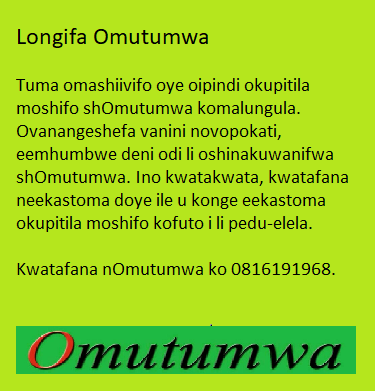Parliamentary discussion on over-profiteering by commercial banks (2)
By Hidipo Hamata (MP) /
[This was a parliamentary contribution by Hon. Hidipo Hamata, MP (PDM) to the Motion to discuss the possibility to investigate the unethical multiple charges resulting in over-profiteering by Commercial Banks in Namibia’s perpetual colonial legacy of class and race discrimination against their clients (this is the second part of the speech)]
As lawmakers, we need to ask whether an adequate degree of competition exists in Namibia’s banking sector and how to encourage competition further, if necessary.
The banks offer essentially the same services. But which bank offers the best value for money? It is almost impossible to know this because there are so many charges and many of them depend on usage and the amount of money involved in the transaction.
According to the October 2022 BoN Banking Fees and Charges Comparison Report, cash withdrawal services at the bank branch for Basic Bank Account (BBA) holders appeared to be the most expensive method for consumers to withdraw cash, followed by cash withdrawal fee at another bank’s ATM.
In the category of cardless cash withdrawal services, one bank seems to be the most expensive when compared to other banking institutions offering cardless cash withdrawal services.
Why is this the case?
As regards debit order payments to third party accounts, as Hon. Veikko Nekundi has already indicated, fees are determined regardless of the value of the transaction, with the highest fee recorded by FNB and Standard Bank Namibia (SBN), where both banks charge N$29.50 per transaction, followed by Nedbank Namibia (NBN) at N$28.00 per transaction.
One banking institution offers debit order payment to third party services free of charge. Why is this the case? In most cases, the bank takes days to deduct money from one’s account, that if you by accident touch that money and the bank finds no money in your account, they penalize you. Why are banks systems made to deduct late?
The banks are overcharging their consumers. But the complex schedule of charges makes it less obvious. Some of the banks certainly charge much higher fees than their peers for the same services.
Why, for instance, does replacement of a lost or damaged ATM card cost as much as $185.00 at one bank and N$173.50 at another, and N$204.16 at another? Why does property valuation cost up to a minimum of N$800.00, max of N$3,771.84 at one bank and up to N$5250 at another?
Why does one bank for instance charge a fee for such services as purchasing of airtime, electricity, and other prepaid services and other banks do not? What is the economic justification for high banking charges?
Banks also encourage us to make use of internet banking services. However, using these online banking services comes at a cost. For example, internet banking payment fees (interbank) appear to be highest for Bank Windhoek (BWK) at N$14.47 per transaction, and NBN at N$13.00 per transaction.
Electronic Funds Transfer (EFT) payments processed via the Nampay stream, near-real-time-credit (NRTC, which is also the instant payment component) show that BWK charges the highest fee per transaction at N$46.02, followed by NBN at N$32.90, and FNB at N$30.00 per transaction. BWK also records the highest interbank stop order payment fee at N$34.27 per transaction, followed by SBN at N$29.50, and NBN at N$28.00 per transaction, respectively.
Our people are already battling economic hardships as a result of low income, and these commercial banks are not making it any easier for them. Plus, these online banking services are barely working properly especially during peak periods (20th, 25th and 30th or 31st of every month).
Some banks make discounts available for preferred customers, a privileged group they refer to as “people of substance”. These VIPs pay a fraction of the amount of charges that the general public pay.
Of course, one would want to argue based on economic considerations that these wealthier clients are less “risky” and they are bringing relatively large amounts of business into the bank.
And it is true, banks are willing to forgo almost all fees and commissions to attract big clients. But is this practice not discriminatory? Banks would argue that their charges are reasonable and near cost, because in Namibia there are considerable transport costs and economies of scale.
– Mr. Hidipo Hamata is a Popular Democratic Movement (PDM) Member of Namibia’s Parliament. The rest of his contribution will be published in the next edition of Omutumwa.






